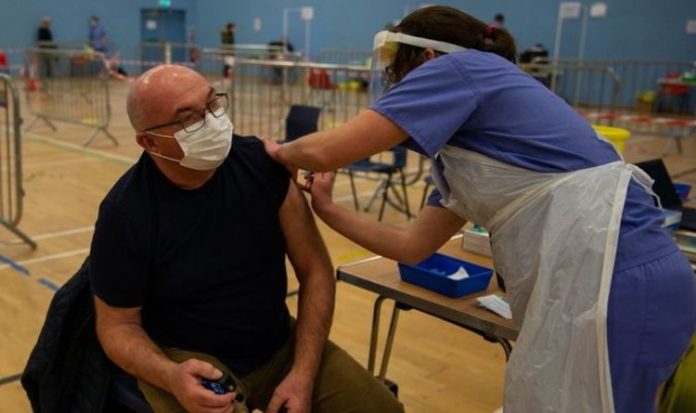Health Secretary Matt Hancock has hailed the introduction as a “pivotal moment” in the UK’s battle against the COVID-19 pandemic. The unveiling of the jab comes less than a week after the vaccine was approved for use in the UK by the Medicines and Healthcare Regulatory Agency (MHRA).
Just over half a million doses of the newly approved vaccine will be available from today, with vulnerable groups already identified as the priority for immunisation.
Some 730 sites already established across the UK have been earmarked for deliveries.
More vaccination hubs are due to open this week to take the total to over 1,000, according to the Department of Health and Social Care (DHSC).
A handful of hospitals in England will offer the vaccine for the first few days.
These include hospitals at Oxford University Hospitals NHS Foundation Trust, where it was developed.
Five other hospital trusts – two in London, and then in Sussex, Lancashire and Warwickshire – will also start delivering the vaccine on Monday.
Later in the week the bulk of supplies will be sent to hundreds of GP-led services and care homes for wider rollout, the DHSC said.
Some 530,000 doses are to be available from Monday, the DHSC said, before tens of millions more doses will be delivered in the coming weeks and months once batches have passed quality checks.
READ MORE: Becoming a vaccine volunteer is worthwhile says JENNIFER SELWAY
The Prime Minister on Sunday hinted that restrictions could get tougher over the coming weeks as cases continue to soar.
Labour leader Sir Keir Starmer called for a national lockdown in England within 24 hours.
The UK has secured 100 million doses of the Oxford/AstraZeneca vaccine as part of its contract.
This would be enough for most of the population, given that two doses of the vaccine must be administered for it to be effective.
In early December the Pfizer-BioNTEch vaccine was rolled out in the UK.
More than one million Britons have since been inoculated.
Second doses of either vaccine will now take place within 12 weeks rather than the 21 days that was initially planned with the Pfizer/BioNTech jab, following a change in guidance which aims to accelerate immunisation.
This has been defended by the UK’s four chief medical officers following criticism, including the British Medical Association (BMA).
The doctors’ union said it was “grossly and patently unfair” for at-risk patients whose imminent second jab appointments would now be rescheduled.







